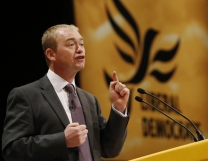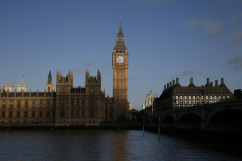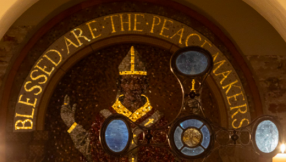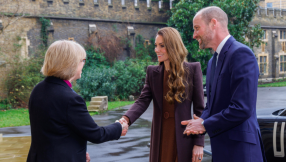The General Election was an opportunity for us all to indulge in a feast of political deliberation and discussion. Question Time was just that little bit more heated, the live debates were the hot topic of conversation, Russell Brand was in full anarchic swing and the election day coverage itself offered a medley of twists and turns.
For Christians there was plenty to chew on too. There was the #SHOWUP video seen by Christians all over the country, which challenged the Church to get on the pitch of political life and not just commentate from the side-lines. Churches also organised more hustings this year than ever before, with many taking the opportunity to wrestle with the question of what a faith-based response to politics should look like.
But now that the election dust has settled and the Ed Milliband 'weird factor' is no longer dominating the headlines, the rest of life seems to have caught up. Westminster feels like a foreign land again, its citizens debating such unrelatable things as the future of the Ashchurch & Tewkesbury railway station. Perhaps – we may be tempted to think – politics should remain a seasonal pursuit, reserved for the next time an election rolls around.
This thinking, while not unusual, puts the Church in danger of leaving the real work of political engagement to others. But surely now is when the hard graft of impacting politics really begins, not just when it's trending on Twitter, but in the often unglamorous, unnewsworthy ways.
The first step to showing up beyond the ballot booth
In her recent 'Thought for the Day', Theos' Elizabeth Oldfield spoke about the need to build supportive, but not always comfortable, communities. Purposeful relationships can help us develop our character. The first advice to anyone wanting to engage meaningfully in politics is to start seeking out these relationships and networks that will challenge you to go deeper in your understanding of yourself and the world around you. These networks also act as an integral support base as we push ourselves to make a stand in society.
Great political heroes like Wilberforce are often held up as model politicians who, compelled by their faith, single-handedly railed against the system to end injustice. We perhaps forget that Wilberforce's rise to political prominence was in no small part aided by his friendship with Prime Minister William Pitt and the support he received from the Clapham Sect. Then there's the more recent example of Gavin Shuker, who after graduating university returned to his hometown of Luton to plant a church and join the local Labour Party, a move that led him to becoming the local MP and current shadow development minister. In Gavin's case, it wasn't the PM but ordinary enthusiastic individuals who propelled him into parliament, offering prayer, encouragement and the promise of an evening canvassing.
This desire to encourage Christians to start building important strategic relationships with others has led Christians in Politics to organise the Show Up Weekend. This will be a unique opportunity to hear from MPs and other Christian leaders as well as to meet people equally passionate about politics.
The second – more awkward – step
Nowhere is building strategic relationships to influence politics more vital than within parties. It's easy to dismiss parties as collectives of the power hungry and the integrity starved. But wanting to see political change, while simultaneously avoiding parties, is like building an Ikea wardrobe without any of the screws...or the wood. Parties can be messy and compromised (not unlike the rest of society) but they are an important part of our modern world.
The Bible challenges Christians to be 'salt' and 'light' in our communities. Where this really matters is in the difficult places, where our ideas are challenged by those we don't always agree with, and where we have to work to maintain relationships while overcoming differences.
Daniel joined a local political party "to understand more about the whole big political process" and because he "wanted to find out locally what [he] could get involved in." By showing up, building relationships and being willing, he's been given more and more responsibility. Today he's the youth officer, "helping out and bringing ideas, even tiny ones".
A political pilgrimage awaits those who want to engage beyond the election. It's a slow journey, embarked upon in community with others, working together for the common good. It's more than sharing an article or writing an angry Facebook status. It's about showing up now that the attention has shifted but the real work has begun.
Will we the church rise to the challenge of engaging in politics, even when it's awkward and uncomfortable, or will we wait till the next time an election rolls around?
Mark Scott is events and communications manager for Christians in Politics. Follow him on Twitter @markpwscott
















